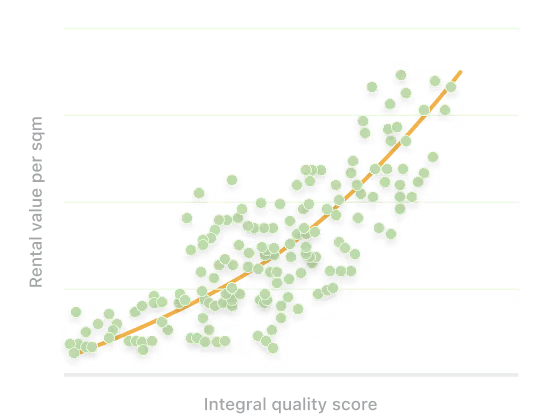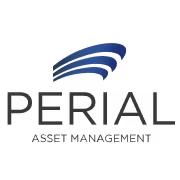Connecting market value with stakeholders' Values
Enhancing decisions and creating value by bringing clarity in real estate
productivity gains: your business plans are quicklier to elaborate and review
participants in the market panel
of value add opportunities identified and evaluated
We enable evidence-based decisions at each step of the value creation path
01
Identify opportunties
02
Measure quality & risks
03
Quantify & prioritize improvements
04
Measure attractiveness increase
05
Estimate rental value creation
06
Estimate capital value creation
07
Quantify triple impact
08
Transaction facilitation
Improving quality creates value

How we deliver
Tailor-made solutions for all decision-making levels
- Projects
- Change management based on reliable data and intuitive analytics
Web-based platform
- For assessment
- Transformation programme elaboration
enabling robust decision-making
Understand our solutions in 5 questions
Find and Know Your Asset
- Building & location
- Benchmarking
- Risks
Value creation
- Potential
- Capex programme assessment
- Optimisation
- Impact
Portfolio management
- Allocation
- Buying/Selling
- Quality assurance of valuations
- Prioritising CAPEX programmes
- Cities / Territories
- Asset owners
- Financiers
- Appraisers
- Consultants
- Asset managers / Developers
- Designers
- Occupiers
Scope
- Buildings
- Portfolios
- Neighbourhoods, cities, territories
Geographic coverage
- Global
Evidence-based decision
- Organised data
- Managing complexity
- Setting the right ambition
- Reduce legal and execution risks
Sustainable Investment
- Creating value for all
- Auditable KPIs
- Credible reporting
Efficiency for professionals and the market
- Enhanced productivity
- Organisation success
- Rewarding progress and improvement
One-off project
- Value-added programme
- Transaction/Negotiation
- Arbitrage
Ongoing management
- Of assets
- Of portfolios
Market model update
- Seamless for users
- Once a year
Benefits for every stakeholder
Asset Owners
Gain strategic clarity and maximize the value of your portfolio.
- Strategic allocation
- Portfolio mapping
- Transparency/consolidation of real estate holdings
- Second opinion on all matters (transactions, expertise, etc.)
- Real estate: search for equity partners
- Impact measurement
Financers
Strengthen risk assessment while reducing capital costs.
- Robustness assessment
- Capital cost reduction
- ESG compliance
Asset Managers
Optimise operations, improve governance, and enhance client trust
- CAPEX valuation & optimisation
- Productivity (up to +75% gain on iterations)
- Improve governance and customer retention
- Improve data quality
Appraisers and consultants
Ensure compliance and deliver reliable, actionable valuations.
- Regulatory compliance
- Provide useful valuation
Municipalities
Integrate citizen voices and measure the real impact of projects
- Integrate collective intelligence of citizens into urban projects
- Impact measurement
Occupiers
The benefit of occupiers
- Matching: select most appropriate buildings
- Moving: explain the rationale of moving to a new location to internal shareholders
- Négociations: negotiate rent based on objective market insights
- Portfolio mapping
Gain strategic clarity and maximize the value of your portfolio.
- Strategic allocation
- Portfolio mapping
- Transparency/consolidation of real estate holdings
- Second opinion on all matters (transactions, expertise, etc.)
- Real estate: search for equity partners
- Impact measurement
Strengthen risk assessment while reducing capital costs.
- Robustness assessment
- Capital cost reduction
- ESG compliance
Optimise operations, improve governance, and enhance client trust
- CAPEX valuation & optimisation
- Productivity (up to +75% gain on iterations)
- Improve governance and customer retention
- Improve data quality
Ensure compliance and deliver reliable, actionable valuations.
- Regulatory compliance
- Provide useful valuation
Integrate citizen voices and measure the real impact of projects
- Integrate collective intelligence of citizens into urban projects
- Impact measurement
The benefit of occupiers
- Matching: select most appropriate buildings
- Moving: explain the rationale of moving to a new location to internal shareholders
- Négociations: negotiate rent based on objective market insights
- Portfolio mapping
RQR relies on members from the industry: the Hive of Experts in Real Estate (HERE), focusing on real estate and urban fabric
They trust us








